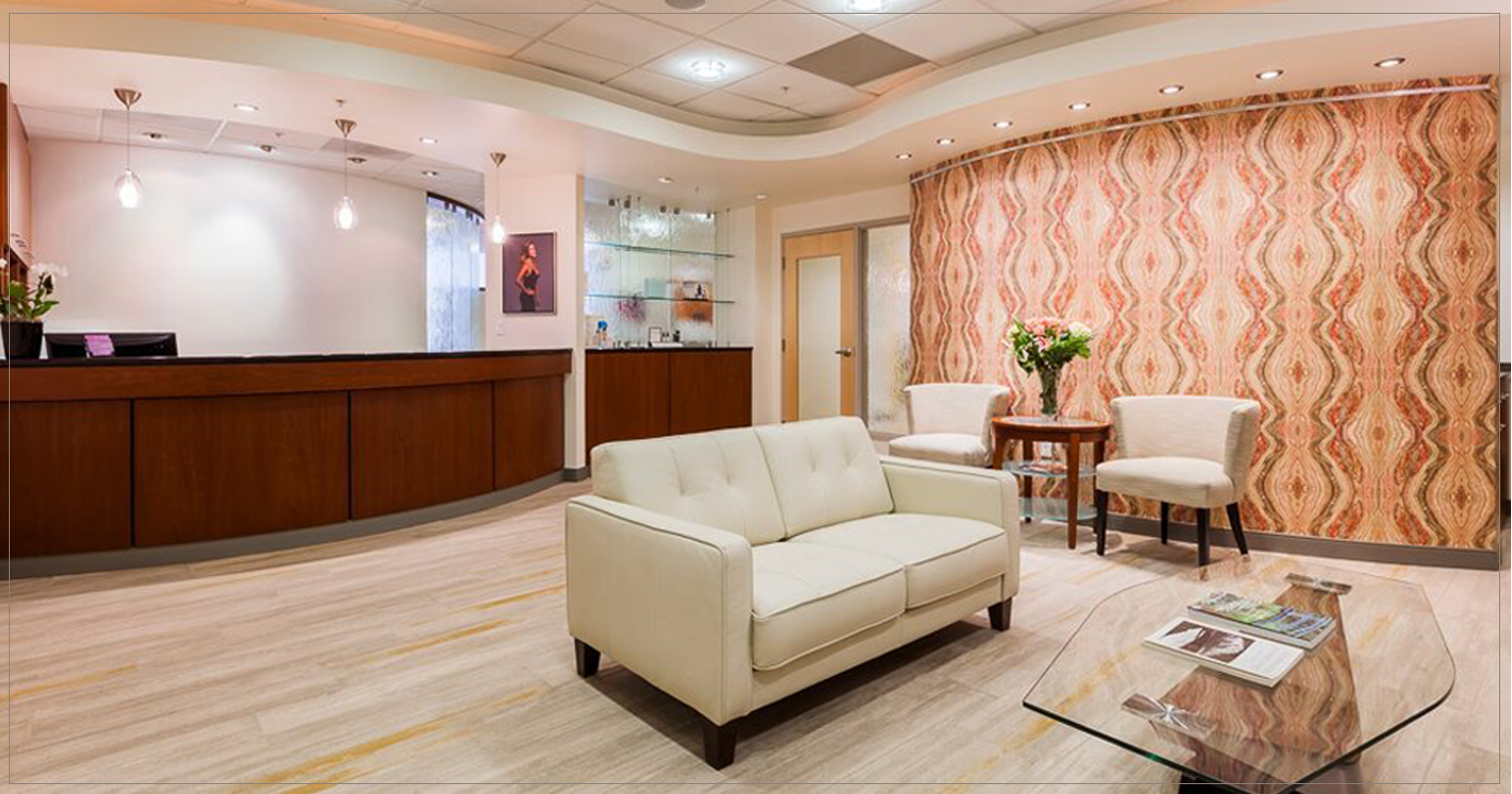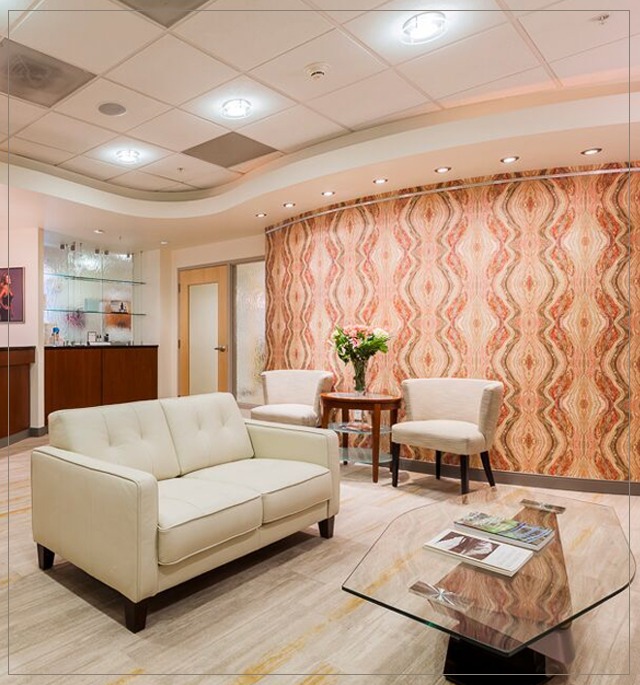
This Article Has Been Medically Approved By Dr. Timothy Connall
Allergan yesterday issued a recall on all their textured breast implants. This was in response to concerns by the FDA and health organizations around the world about the association between Allergan textured breast implants and a rare form of cancer, ALCL.
At Connall Cosmetic Surgery and Esprit® Cosmetic Surgeons, Dr. Connall has placed thousands of breast implants, most being round, smooth-shelled implants. In some cases, we have placed shaped textured-shell implants, but those devices have been either Mentor or Sientra devices. Mentor and Sientra textured implants are not subject to the FDA recall because they carry a very low risk of being associated with ALCL.
Our patient’s health and safety are our foremost concern. We will continue to closely monitor the scientific data and FDA guidance on all breast implants and any possible risks associated with breast augmentation surgery. Our patients with textured-shaped implants should be reassured that their risk of ALCL is extremely low and that no additional treatment is recommended.
For detailed information, here is the FDA statement on the recall of Allergan textured breast implants:
FDA STATEMENT ON RECALL OF ALLERGAN TEXTURED BREAST IMPLANTS
To protect individuals from the increased risk of breast implant-associated anaplastic large cell lymphoma (BIA-ALCL), associated with Allergan BIOCELL textured breast implants, the Food and Drug Administration (FDA) requested that Allergan recall its BIOCELL textured breast implants and tissue expanders. Allergan agreed and is removing these products from the global market. The FDA requested that Allergan recall all BIOCELL textured breast implants and tissue expanders marketed in the U.S. based on newly submitted Medical Device Reports (MDRs) reporting worldwide cases of BIA-ALCL and BIA-ALCL-related deaths associated with these devices. Allergan has notified the FDA that it will recall its BIOCELL textured breast implants and tissue expanders from the global market.
These products have the same BIOCELL textured surface (shell), which is a unique surface used only by Allergan.
The FDA’s analysis was attributed to a new worldwide reported total of 573 unique BIA-ALCL cases including 33 patient deaths. Of the 573 cases of BIA-ALCL, 481 are reported to have Allergan breast implants at the time of diagnosis. In addition, 12 of 13 deaths occurring in patients with BIA-ALCL where the manufacturer was known occurred in patients implanted with an Allergan breast implant at the time of their BIA-ALCL diagnosis. The manufacturer and/or texture is unknown for the remaining 20 reported deaths from BIA-ALCL.
Based on the currently available information, including the newly submitted data, our analysis demonstrates that the risk of BIA-ALCL with Allergan BIOCELL textured implants is approximately 6 times the risk of BIA-ALCL with textured implants from other manufacturers marketing in the U.S. and continued distribution of Allergan’s Biocell BIOCELL textured breast implants would likely cause serious, adverse health consequences and potentially death from BIA-ALCL.
The FDA will continue to evaluate any new information and may, as a result, take action regarding other breast implants, if warranted. Although most cases of BIA-ALCL are associated with the use of textured breast implants, particularly macro-textured implants – such as those made by Allergan, we are continuing our assessment to determine whether the risk of developing BIA-ALCL is limited to specific models of textured, or all textured breast implants. Therefore, at the present time, we believe all individuals who are considering a breast implant of any type be informed of the risk of developing BIA-ALCL.
BIA-ALCL is not breast cancer – it is a type of non-Hodgkin’s lymphoma (cancer of the immune system). In most cases, BIA-ALCL is found in the scar tissue and fluid near the implant, but in some cases, it can spread throughout the body. At this time, the overall incidence of developing BIA-ALCL is considered to be low; however, a BIA-ALCL diagnosis is serious and can lead to death, especially if not diagnosed early or promptly treated. In most patients, BIA-ALCL is treated successfully with surgery to remove the implant and the scar tissue surrounding the implant; however, some patients may require treatment with chemotherapy and/or radiation therapy.
Patients: Important Recommendations If You Have Allergan BIOCELL Breast Implants
If you have no symptoms, we are not recommending the removal of these or other types of breast implants due to the low risk of developing BIA-ALCL. However, if you have any questions, talk to your health care provider.
Know the symptoms of BIA-ALCL – primarily persistent swelling or pain near the breast implant – and monitor the area around your breast implants for any changes.
If you experience any of these symptoms or other changes, talk to your health care provider regarding the need for further evaluation. Evaluation for BIA-ALCL typically involves a physical exam, imaging, and/or assessment of the fluid or tissue around the breast implant. It is important to undergo an evaluation to diagnose BIA-ALCL since a confirmed BIA-ALCL diagnosis may change the type of operation that should be performed.
Based on discussions with your health care provider, patients with confirmed BIA-ALCL should undergo implant removal and removal of the surrounding scar capsule, which is a more extensive operation than implant removal alone.
As with any implanted device, it is good to keep a record of the device manufacturer, unique device identifier, and implant model name. You may have received this information on a patient device card from your surgeon. If you would like to obtain any of this information, consider asking your surgeon or obtaining the record of your surgery (operative notes) from the facility where it was performed.
Understand that most cases of BIA-ALCL occur many years after breast implant placement. Talk to your surgeon about your risk of developing BIA-ALCL.
If you are considering breast implants, please see these important recommendations.
Recommendations for Health Care Providers
You should immediately stop using (implanting) Allergan BIOCELL breast implants; and work with your facility to return existing inventory.
At this time, the FDA does not recommend removal of these or other types of breast implants in patients who have no symptoms due to the low risk of developing BIA-ALCL.
You should inform your patients about the risk of developing BIA-ALCL and what to look for.
Prior to implantation of any breast implant, provide your patients with the manufacturer’s patient labeling, as well as any other educational materials, and discuss the benefits and risks of the different types of implants.
Consider the possibility of BIA-ALCL when treating a patient with late onset, peri-implant changes. In some cases, patients presented with a seroma, mass, hardening adjacent to the breast implant. If you have a patient with suspected BIA-ALCL, ensure an evaluation is conducted by experts familiar with the diagnosis and treatment of BIA-ALCL.
Collect fresh seroma fluid and representative portions of the capsule and send for pathology tests to rule out BIA-ALCL. Diagnostic evaluation should include cytological evaluation of seroma fluid or mass with Wright Giemsa stained smears and cell block immunohistochemistry/flow cytometry testing for cluster of differentiation (CD30) and Anaplastic Lymphoma Kinase (ALK) markers.
Develop an individualized treatment plan considering current clinical practice guidelines, such as those from the Plastic Surgery Foundation of the National Comprehensive Cancer Network (NCCN)External Link Disclaimer when choosing your treatment approach.
Report all cases of BIA-ALCL in individuals with breast implants to MedWatch, the FDA Safety Information and Adverse Event Reporting program.
Health care personnel employed by facilities that are subject to the FDA’s user facility reporting requirements should follow the reporting procedures established by their facilities. Prompt reporting of adverse events can help the FDA identify and better understand the risks associated with medical devices. In some cases, the FDA may contact you for additional information. The FDA will keep the identities of personnel reporting the event and the patient confidential.
Submit case reports of BIA-ALCL to the Patient Registry and Outcomes For breast Implants and anaplastic large cell Lymphoma etiology and Epidemiology (PROFILE) RegistryExternal Link Disclaimer to contribute to a better understanding of the causes and treatments of BIA-ALCL.
Addressing Concerns of Patients Who Have Breast Implants
The FDA understands that today’s action may cause concern to patients who have breast implants, especially those who know they have one of the listed Allergan BIOCELL model implants or may not know the implant’s manufacturer or model. The FDA continues to monitor and evaluate reports of adverse events in databases, including external patient registries, and in scientific literature for the incidence of BIA-ALCL across all breast implants and other devices intended for use in the breast. The FDA further notes that the macro-textured implants, like the BIOCELL textured implants manufactured by Allergan, represent less than 5% of breast implants sold here in the U.S. In fact, textured implants account for only 10% of all breast implants sold in the U.S. To fully understand your risk of developing BIA-ALCL, the FDA recommends that patients and healthcare providers follow the FDA’s recommendations stated above. More information about BIA-ALCL can be found on the Breast Implants page and the FDA will continue to update the public about developments in this area.
FDA Actions
The FDA continues to collect and evaluate information about BIA-ALCL in individuals with breast implants.
On an ongoing basis, we:
Receive and review medical device reports (MDRs).
Review the current medical literature.
Exchange information with other U.S. and international regulators and scientific experts.
Review data from the Patient Registry and Outcomes for Breast Implants and Anaplastic Large Cell Lymphoma (ALCL) Etiology and Epidemiology (PROFILE Registry)External Link Disclaimer (a collaborative effort with the American Society of Plastic Surgeons (ASPS) and the Plastic Surgery Foundation (PSF)).
Review information that breast implant manufacturers include about BIA-ALCL in their patient and health care professional labeling.
Review quarterly trending analyses of adverse events that breast implant manufacturers provide to FDA.
Review information provided from on-going post-market studies.
Monitor adverse events from other real-world data (e.g. National Breast Implant RegistryExternal Link Disclaimer).
Reporting Problems with a Medical Device
If you suspect or experience a problem with a medical device, the FDA encourages you to use the MedWatch Voluntary Reporting Form to report the problem.
Health care personnel employed by facilities that are subject to the FDA’s user facility reporting requirements should follow the reporting procedures established by their facilities.
Questions?
If you have questions, email the Division of Industry and Consumer Education (DICE) at DICE@FDA.HHS.GOV or call 800-638-2041 or 301-796-7100.
Affected Products
Allergan Natrelle Saline-Filled Breast Implants (formerly McGhan RTV Saline-Filled Mammary Implant) approved under P990074. The following are the textured styles:
Style 163 – BIOCELL Textured Shaped Full Height, Full Projection Saline Breast Implants
Style 168 – BIOCELL Textured Round Moderate Profile Saline Breast Implants, also referred to as 168MP (168 Moderate Profile)
Style 363 – BIOCELL Textured Shaped Moderate Height, Full Projection Saline Breast Implants, Allergan catalog includes 363LF, or 363 Low Height Full Projection
Style 468 – BIOCELL Textured Shaped Full Height Moderate Projection Saline Breast Implants
Allergan Natrelle Silicone-Filled Textured Breast Implants (formerly Inamed Silicone-Filled Breast Implants) approved under P020056. The following are the textured styles:
Style 110 – BIOCELL Textured Round Moderate Projection Gel Filled Breast Implants
Style 115 – BIOCELL Textured Round Midrange Projection Gel Filled Breast Implants
Style 120 – BIOCELL Textured Round High Projection Gel Filled Breast Implants
Style TRL – Natrelle Inspira BIOCELL Textured Responsive Silicone-Filled Breast Implants
Style TRLP – Natrelle Inspira BIOCELL Textured Responsive Silicone-Filled Breast Implants
Style TRM – Natrelle Inspira BIOCELL Textured Responsive Silicone-Filled Breast Implants
Style TRF – Natrelle Inspira BIOCELL Textured Responsive Silicone-Filled Breast Implants
Style TRX – Natrelle Inspira BIOCELL Textured Responsive Silicone-Filled Breast Implants
Style TCL – Natrelle Inspira BIOCELL Textured Cohesive Silicone-Filled Breast Implants
Style TCLP – Natrelle Inspira BIOCELL Textured Cohesive Silicone-Filled Breast Implants
Style TCM – Natrelle Inspira BIOCELL Textured Cohesive Silicone-Filled Breast Implants
Style TCF – Natrelle Inspira BIOCELL Textured Cohesive Silicone-Filled Breast Implants
Style TCX – Natrelle Inspira BIOCELL Textured Cohesive Silicone-Filled Breast Implants
Style TSL – Natrelle BIOCELL Textured Soft Touch Silicone-Filled Breast Implants
Style TSLP – Natrelle BIOCELL Textured Soft Touch Silicone-Filled Breast Implants
Style TSM – Natrelle BIOCELL Textured Soft Touch Silicone-Filled Breast Implants
Style TSF – Natrelle BIOCELL Textured Soft Touch Silicone-Filled Breast Implants
Style TSX – Natrelle BIOCELL Textured Soft Touch Silicone-Filled Breast Implants
Natrelle 410 Highly Cohesive Anatomically Shaped Silicone Filled Breast Implants approved under P040046. The following are the textured styles:
Style 410FM
Style 410FF
Style 410MM
Style 410 MF
Style 410 FL
Style 410 ML
Style 410 LL
Style 410 LM
Style 410 LF
Style 410 FX
Style 410 MX
Style 410 LX
Allergan tissue expanders for the breast that have BIOCELL texturing originally cleared as:
Natrelle 133 Plus Tissue Expander (K143354)
Natrelle 133 Tissue Expander with Suture Tabs (K102806)






